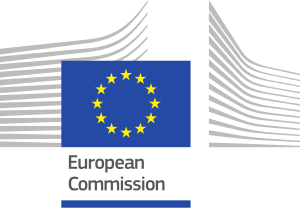Early Dialogues for Pharmaceutical Products
Two types of EDs for Pharmaceutical Products
EUnetHTA offers two options for EDs on pharmaceuticals:
EMA-EUnetHTA Parallel Consultations: In parallel between HTA bodies and regulators (EMA).
Prospective and timely advice may allow the Applicant to integrate specific HTA and regulatory needs into the development plan and, therefore, fulfil the evidence requirements of both regulators and HTA bodies at the same time. To this end, EUnetHTA, in collaboration with the EMA, offers Parallel Consultations involving both HTA bodies and regulators. Detailed information regarding Parallel Consultations is available on the Parallel Consultations page of this website.
EUnetHTA Multi-HTA EDs: An Early Dialogue taking into account the opinions of HTA bodies only. Detailed information regarding Multi-HTA EDs (including the EUnetHTA Guidance document, necessary templates, etc.) is available on the Multi-HTA ED page of this website.
All EUnetHTA EDs are supported by the EUnetHTA ED Secretariat, thereby benefiting from HTA scientific and administrative coordination, consolidated HTA comments, a concerted effort to find agreement among the EDWP regarding specific issues as well as a consolidated document containing EUnetHTA’s Final Written Recommendations. In the case of Parallel Consultations, opportunities for closed discussion amongst HTA, and with Regulators, with mutual understanding are maximised.
The decision to request a Parallel Consultation or a Multi-HTA ED is up to the Applicant, but the request must be initiated during the EUnetHTA Open Call period.
The Early Dialogues Working Party (EDWP)
The Early Dialogues Working Party (EDWP) has been established by EUnetHTA to ensure robust high-quality HTA outputs for pharmaceutical EDs and is the standing working part of HTA bodies for the performance of scientific advice. Currently, the EDWP is composed of the following HTA bodies: France (Haute Autorité de Santé: HAS), Germany (Gemeinsamer Bundesausschuss: G-BA), Hungary (National Institute of Pharmacy and Nutrition: NIPN), Italy (Italian Medicines Agency: AIFA with alternate Regione Emilia-Romagna: RER), Norway (Norwegian Medicines Agency: NOMA), and Spain (Agencia Española de Medicamentos y Productos Sanitarios: AEMPS with the support of regional agencies Área de Evaluación de Tecnologías Sanitarias de Andalucía: AETSA and Agència de Qualitat i Avaluació Sanitàries de Catalunya Servei Català de la Salut: AQuAS-CatSalut). The UK (The National Institute for Health and Care Excellence: NICE) is an EDWP member for Multi-HTA only. EDWP membership will be up for renewal every two years. The primary responsibilities of the EDWP include:
- assess the eligibility of advice requests in view of the Eligibility Criteria, as specified in Section 3.3.2, and report to the ED Secretariat on the eligibility and acceptance of the scientific advice requests;
- participate in the performance of the scientific advice
- engage national experts in the framework of EDs, who cooperate on a voluntary basis.
The EDWP aims to ensure the constant quality of EDs. All EUnetHTA EDs are led by a EUnetHTA Scientific Coordinator with the support of the Rapporteur, both selected from among the EDWP members on a rotating basis.
EUnetHTA Selection Criteria
While the choice of what type of ED (Parallel Consultation vs. Multi-HTA) is up to the Applicant, the decision as to the acceptance (or not) of a request for Parallel Consultation or Multi-HTA ED is up to the EDWP.
This decision is based on the application of the EUnetHTA Selection Criteria. The selection criteria state that the product should aim to bring added benefit to patients, i.e. by:
- A new mode of action for the indication;
- AND targeting a life-threatening or chronically debilitating disease;
- AND responding to unmet need (no treatment or only unsatisfactory treatment available).
The EUnetHTA ED Secretariat (EUnetHTA-HAS@has-sante.fr) is available for any additional information companies may need to take their decisions on the type of ED they should request.

